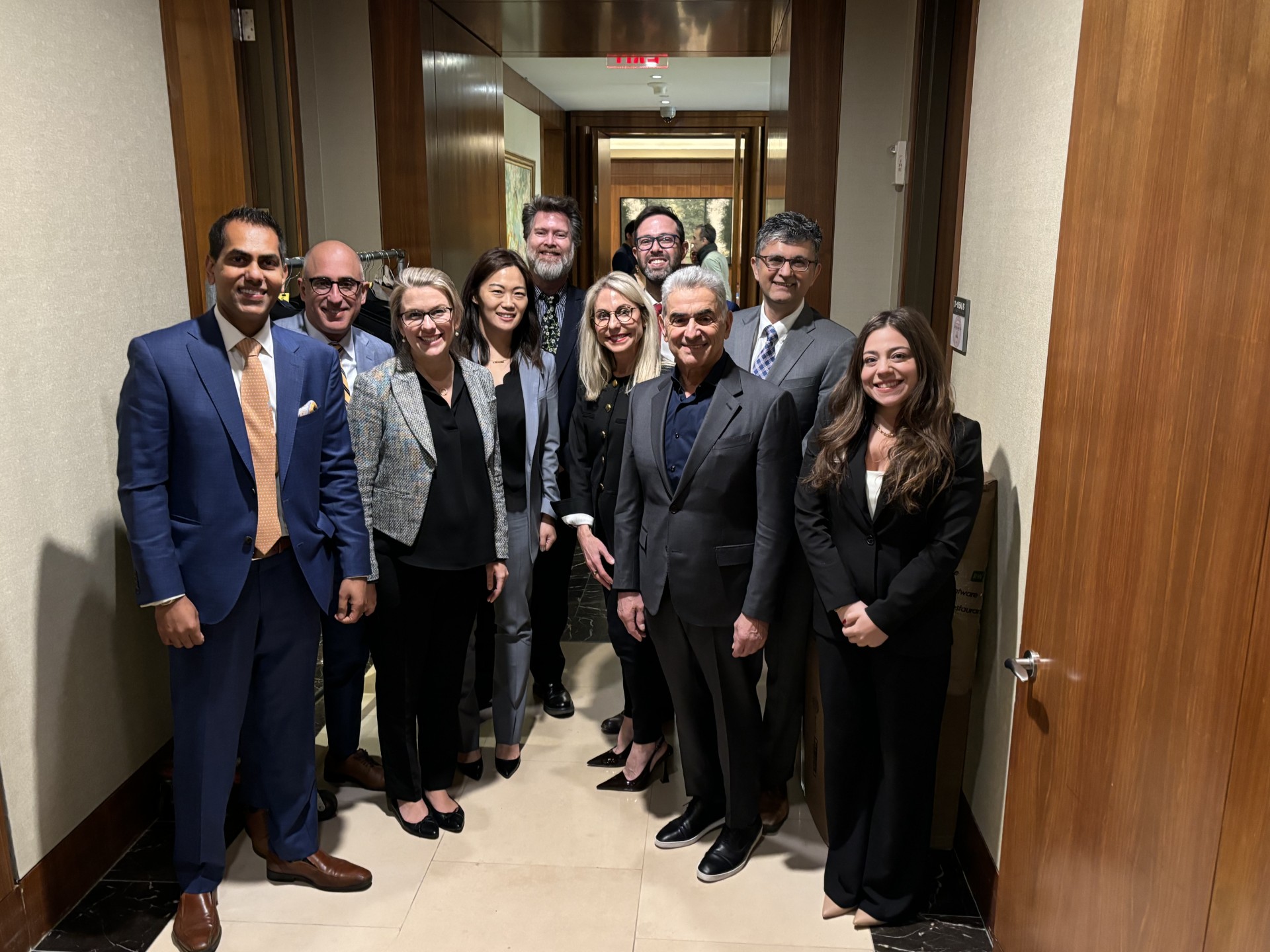
On Friday, November 15, 2024, Weill Cornell Medicine’s Center for Virtual Care (CVC) hosted their 7th Annual Virtual Healthcare in the Mainstream Symposium and Research Forum.
The continued growth in both the global acceptance of virtual care, and the technology that supports digital health and telemedicine initiatives have made these conferences and discussions increasingly important. And with the highest in-person and virtual attendance in the history of the event, the medical community is taking notice.
“We envisioned this year’s conference as a means of broadening the discussion around digital health to include not just healthcare providers, educators, and researchers, but partners in health tech, policymakers, and innovators. The engagement and contributions of these stakeholders will carry us into the future of healthcare and education as seamlessly as possible,” said Dr. Rahul Sharma, Founder & Executive Director, Center for Virtual Care at Weill Cornell Medicine.
To that end, this year’s event extended the conversation to include high-profile guest speakers from Microsoft, venture capital firm Andreessen Horowitz Bio+Health (a16z bio+health), Devoted Health, Mass General Brigham, Brown School of Public Policy and Weill Cornell Medicine.
The full-day event kicked off with Dr. Alison Holliday of Devoted Health whose presentation centered around the digital equity of providing telehealth to older adults. “Virtual healthcare has the opportunity to bridge geographical, economic, and logistical barriers, and forward-thinking virtual telehealth, in particular, is care that I would want for my loved ones, which is always my north star,” said, Dr. Holliday. “The connections made at the event laid the groundwork for future collaborations that will extend well beyond this conference. It’s clear that we need a collective effort from diverse minds to tackle the challenges ahead—there’s truly exciting work on the horizon!”
Dr. Jonathan St. George walked the audience through the thought that goes behind the design planning of new learning spaces. “We must redefine the space itself. Learning space defines the clinical space. It involves ethics, clinical skills, how we talk to people – all built into the learning space,” said Dr. St. George in his presentation. Later in the conference, he offered an in-person demo of how augmented reality is making its mark in education.
Heather O’Sullivan, MS, RN, AGNP, provided honest lessons learned, and a forward-looking perspective on the transformation of Healthcare at Home. She highlighted Mass General Brigham's success in expanding its virtual capabilities and logistics and building a new care team to lead in acute in-home care delivery. This includes integrating advanced virtual cardiac monitoring at home equal to traditional hospital settings.
Ms. O'Sullivan emphasized the paradigm shift occurring within our clinical workforce nationally. She posed a critical question: “How should today’s students and clinical professionals learn to enter the privacy of someone’s home during vulnerable moments? Previously, our patients visited us as guests in our healthcare facilities. Today, with hybrid care options, we have the privilege of being guests in their homes. How do academic curricula and experiences prepare clinicians for this new reality? As we continue to expand in-home care, these questions will guide us in delivering empathetic, patient-first care across the full continuum of clinical needs."
Dr. Jim Weinstein’s presentation offered insights and a demonstration on how artificial intelligence (AI) can and will transform healthcare. “I believe in the power of virtual healthcare to transform the way we deliver medical services. I want to be careful that AI doesn’t become a technology substitute that doesn’t really solve the problem,” Dr. Weinstein said, adding a cautionary tale, “Physicians won’t be replaced by AI, but physicians who don’t use AI will be replaced.”
The last speaker of the morning session was Julie Yoo of a16z bio+health who addressed the scalability of virtual-first healthcare. “Virtual first care is THE lever to take us from traditional paradigm where we’re constrained by being hyperlocal, to one in which we’re able to continuously engage patients, take labor that exists in one market and make it available to the national market,” Ms. Yoo said in her presentation.
For the third time since the advent of the conference, the afternoon focused on research in telemedicine and digital health. The afternoon was kicked off by Dr. Junaid Razzak, Vice Chair of Research for Weill Cornell Medicine’s Department of Emergency Medicine. “Virtual healthcare is evolving rapidly, with health system science often lagging the changes in clinical practices. It is therefore critical that care providers, researchers and innovators have open dialogue to ensure patient safety while maximizing innovation,” said Dr. Razzak.
The day concluded with a presentation by keynote speaker Dr. Ateev Mehrotra, Walter H. Annenberg Distinguished Professor and Chair of the Department of Health Services, Policy, and Practice at the Brown School of Public Health, about the pitfalls of telemedicine research, followed by highlights of Weill Cornell Medicine’s Department of Emergency Medicine’s current research, oral presentations, and poster presentations.
Dr. Alex Fortenko, Director of Clinical Innovation at the CVC and the Director of Telemedicine at the Weill Cornell Department of Emergency Medicine, concluded, “What's unique about this year's conference is that although the speakers all seemingly focused on different topics - Hospital at Home, AI agents, augmented reality in education - they all looked at the critical intersection between research and tangible clinician and patient impact. There is so much innovation out there focusing on devices, apps, algorithms that are shiny in theory, but maybe less impactful in real life. This conference really homed in on how technology can make an impact in the classroom and at the bedside with a special emphasis on delivering care virtually to patients when and where they want it."
We are excited to continue this conversation. Stay tuned for event details for our 2025 event.


